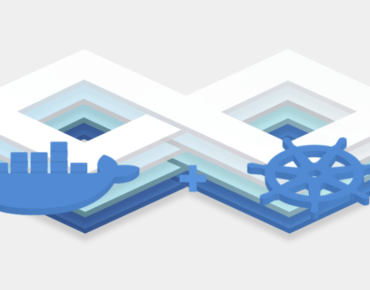Docker’s Sale Elevates Kubernetes as Standard

Docker, the cloud software startup that pioneered hyperscale use of agile application containers, is ending its six-year run as an enterprise vendor, selling off its container platform to cloud tool vendor Mirantis and returning to its development roots.
The acquisition effectivity elevates Kubernetes as the go-to enterprise tool for orchestrating application container software and other micro-services, observers noted.
Terms of the deal were not disclosed.
Specifically, Mirantis will acquire Docker’s enterprise business, including products, technology, intellectual property and customers along with an undisclosed number of Docker Enterprise employees. Those tools include Docker Enterprise Engine, Trusted Registry, Unified Control Plane and its command line tool.
Mirantis, Campbell, Calif., said it would combine those components with its Kubernetes cluster orchestrator service to provide a “consistent developer experience” on Kubernetes-based infrastructure.
Solidifying the status of Kubernetes as the de facto industry standard for container management, Mirantis said the Google-developed tool would remain its “primary orchestrator going forward,” but it would continue to support Docker’s Swarm orchestrator for at least two years.
In July, Docker released a new version of its enterprise edition that expanded support for Kubernetes, a move that was seen as acknowledgment that the IT industry has coalesced around the popular orchestration platform.
Scott Johnson, Docker’s senior vice president, said in a blog post the streamlined company would now focus on advancing “developer workflows for modern apps.”
The only surprise expressed by industry observers was that a larger software vendor like Microsoft (NASDAQ: MSFT) did not move to acquire Docker. “The writing was on the wall,” said Rani Osnat, vice president of Strategy at Aqua Security, the cloud security specialist.
“Those of us who’ve been in this space for a while have seen the Kubernetes ecosystem overtake what Docker had originally started, and it was well known that Docker… was struggling to commercially capitalize on its initial market lead.”
Osnat added that Docker’s enterprise edition was outpaced by managed Kubernetes services from large cloud service providers as well as IBM/Red Hat’s OpenShift platform.
Still, about one-third Fortune 100 companies are using Docker’s enterprise platform, a total that was boosted when it began shipping Kubernetes as part of its control plane in 2017. “This acquisition will accelerate Mirantis’ vision to deliver Kubernetes-as-a-service with a consistent experience for developers on any cloud and on-premises infrastructure,” company CEO Adrian Ionel noted in a blog post announcing the deal.
Mirantis was originally part of the community of developers around OpenStack. “Mirantis was already a certified distribution of Kubernetes, and getting Docker [enterprise] capabilities on top of that will allow them to compete more effectively in this busy but growing market,” Osnat said.
Observers also noted that Docker had been focusing on Windows container development, but suggest Microsoft and other large cloud vendors lost interest in its technology once Kubernetes emerged as the preferred orchestration platform.
“Docker’s technology is the de facto standard for containers, but that technology is freely available as open source, so anyone can use it,” said Murli Thirumale, CEO of container storage company Portworx.
“On the orchestration side, [Docker’s] technology was beaten out by Kubernetes, which is now the de facto standard for orchestration.”
For its part, Mirantis said it would work with Docker will “on core upstream technology” along with integrating its products with Docker Hub and other tools as well as running Mirantis tools on the Docker container platform.
Among the new capabilities to be added by Mirantis to the Docker enterprise platform are new managed services for container administration and management as well as its Kubernetes distribution and other cloud-native tools.
Along with what it called its “restructuring,” San Francisco-based Docker also this week announced a $35 million funding round led by previous investors Benchmark Capital and Insight Partners.
Related
George Leopold has written about science and technology for more than 30 years, focusing on electronics and aerospace technology. He previously served as executive editor of Electronic Engineering Times. Leopold is the author of "Calculated Risk: The Supersonic Life and Times of Gus Grissom" (Purdue University Press, 2016).











